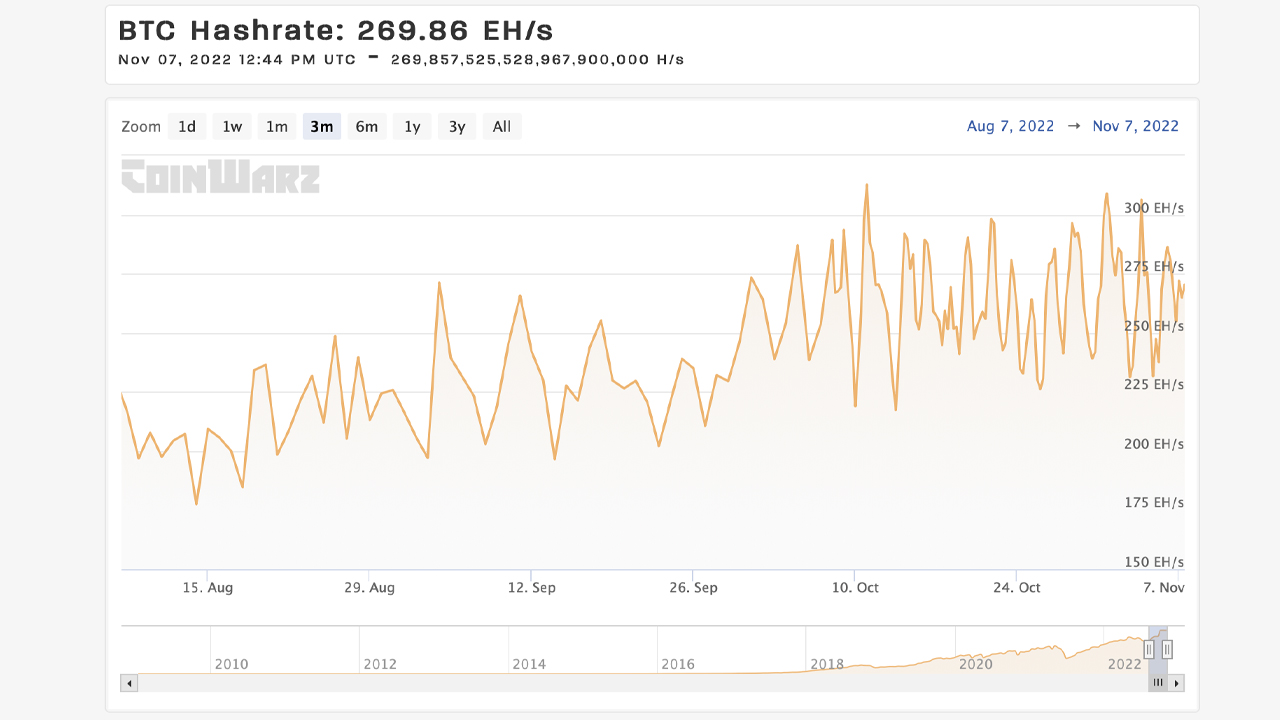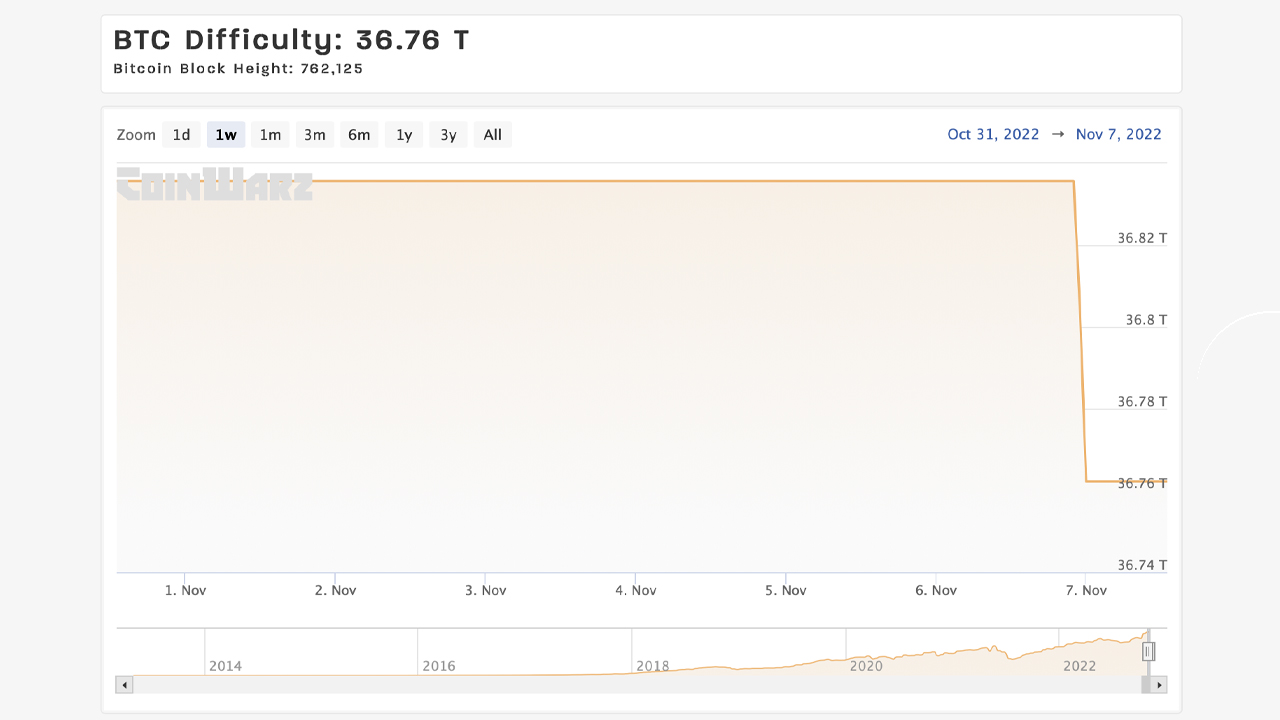Bitcoin’s Mining Difficulty Shrinks for the First Time in 4 Weeks – Mining Bitcoin News

Bitcoin miners caught a small break late Sunday evening (ET) after the network’s mining difficulty dropped 0.20% lower than the difficulty rating two weeks prior. The drop is the first mining difficulty decrease in four weeks, as the metric changed from 36.84 trillion to 36.76 trillion.
Bitcoin Miners Catch a Miniscule Break as the Network’s Difficulty Shrinks by 0.20%
Bitcoin’s mining difficulty is still extremely high in comparison to the height it was in mid-August 2022. For instance, on Aug. 17, 2022, just before the year’s third largest difficulty increase, the difficulty was around 28.35 trillion. At 36.76 trillion, data shows the difficulty increased by 29.66% since Aug. 17, which makes it more than 29% more difficult to find a bitcoin (BTC) block today than it was in mid-August.

While the 0.20% drop is a small decrease, it is still helpful to miners in contrast to the difficulty rising higher. At the time of writing, Bitcoin’s total hashrate is around 269.86 exahash per second (EH/s). Records show that BTC’s total hashrate lifetime high (321.15 EH/s) recorded on Oct. 5, 2022, has been broken by a new record recorded on Oct. 31. On that day, at block height 761,186, Bitcoin’s total hashrate reached an all-time high at 327.35 EH/s.

The reason why the network’s mining difficulty dropped is because block generation time has slowed down. Block intervals are just over 10 minutes at the time of writing, as the block generation time is currently 10 minutes and six seconds long. This means, at least at current speeds, another difficulty decrease could be in the cards when it changes again on Nov. 20, 2022. However, a lot can change in two weeks or 2,016 blocks, and the recent 0.20% reduction helps miners.
Bitmain’s S19 XP Hydro Bitcoin Mining Rig With 255 Terahash Becomes the Most Profitable Mining Device
Three-day statistics show Foundry USA leads the pack when it comes to today’s top bitcoin mining pools. Foundry commands 31.47% of the global hashrate with 84.07 (EH/s) of SHA256 hashpower dedicated to the Bitcoin chain. Foundry is followed by Antpool, F2pool, Binance Pool, and Viabtc respectively. Unknown hashrate or stealth miners command the sixth largest pool position in terms of hashrate size, with 10.59 EH/s or 3.96% of the global hashrate.
Bitcoin’s fourth block subsidy epoch or the next block reward halving is expected to happen between April 13 and April 22, 2024, after more than 77,000 BTC blocks are mined. On Nov. 7, 2022, the most profitable bitcoin mining rig is the Bitmain Antminer S19 XP Hyd. with 255 terahash per second (TH/s). At a very high electricity rate of $0.12 per kilowatt hour (kWh), the Bitmain-made model profits by $11.01 per day. If electrical costs shrunk to $0.07 per kWh, the Antminer S19 XP Hyd. can get an estimated $15.51 per day in profits.
What do you think about Bitcoin’s network difficulty slipping by 0.20% this week? Let us know what you think about the current state of the bitcoin mining ecosystem in the comments section below.
Image Credits: Shutterstock, Pixabay, Wiki Commons
Disclaimer: This article is for informational purposes only. It is not a direct offer or solicitation of an offer to buy or sell, or a recommendation or endorsement of any products, services, or companies. Bitcoin.com does not provide investment, tax, legal, or accounting advice. Neither the company nor the author is responsible, directly or indirectly, for any damage or loss caused or alleged to be caused by or in connection with the use of or reliance on any content, goods or services mentioned in this article.















